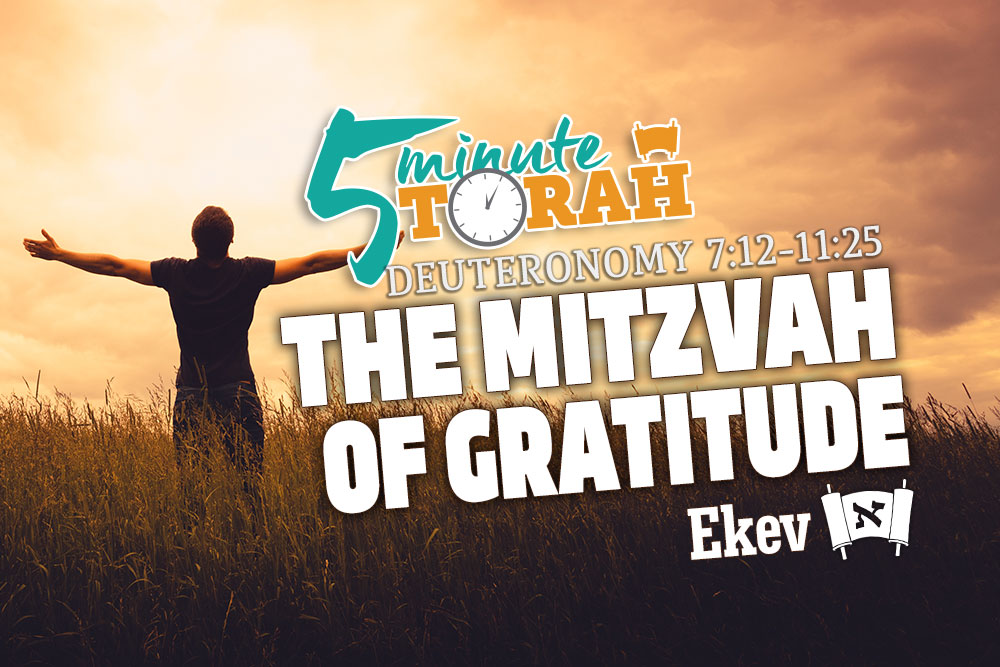The Mitzvah of Gratitude
Series:

Parashat Ekev - Deuteronomy 7:12-11:25
In Judaism, we have the practice of giving thanks after each meal. This is called Birkat Hazon, or Grace After Meals. This practice is derived from the passage in our Torah portion that gives the instruction to thank the LORD after eating:
And you shall eat and be full, and you shall bless the LORD your God for the good land he has given you. (Deuteronomy 8:10)
But isn’t it only natural for a person to give thanks for what they have received? Why do we need a commandment to require this of us? Let’s look at an example from the Apostolic Scriptures that will bring us some clarification:
And as he [Yeshua] entered a village, he was met by ten lepers, who stood at a distance and lifted up their voices and said, "Yeshua, Master, have mercy on us!" When he saw them he said to them, "Go and show yourselves to the priests." And as they went they were cleansed. Then one of them, when he saw that he was healed, turned back, praising God with a loud voice; and he fell on his face at Yeshua’s feet, giving him thanks. Now he was a Samaritan. Then said Yeshua, "Were not ten cleansed? Where are the nine? Was no one found to return and give praise to God except this foreigner?" And he said to him, "Rise and go your way; your faith has made you well." (Luke 17:12–19)
In this incident, all ten lepers were healed by Yeshua, yet only one returned to thank him. In order to understand why, we need take a peek into a concept in Hebrew. In Hebrew, the expression for gratitude is hakarat hatov, which literally means “recognizing the good.” Once we understand this concept, we can find traces of this Semitic expression embedded into our Gospel narrative. It says that “when he saw that he was healed” he turned back to praise God and thank Yeshua. Yeshua asked him, “Were not ten cleansed?” Indeed, there were ten cleansed, but only one “recognized the good” that was done to him.
What about the other nine? They were like the majority of us. If Yeshua had asked them what they would give to be healed, they would probably have given anything in the world. But once they were healed—once they were satisfied—they quickly forgot their desperate need that existed only moments before. This is why we need a commandment that tells us to be grateful and to express that gratitude once we have satisfied our need. We are a forgetful people, especially when it comes to the blessings poured out on us. Immediately after the commandment is given, the LORD explains why we are instructed to give thanks once we have been satiated:
Take heed lest you forget the LORD your God, by not keeping his commandments and his ordinances and his statutes, which I command you this day: lest, when you have eaten and are full… then your heart be lifted up, and you forget the LORD your God, who brought you out of the land of Egypt, out of the house of bondage (Deuteronomy 8:11–12,14)
Becoming more intentional is a step toward overcoming our human nature of forgetfulness and ungratefulness. Once we begin practicing the mitzvah of gratitude, we will find that we have a more thankful heart. Not only that, but we will be blessed. We will have recognized the good and begun our journey toward a more fulfilling life.








